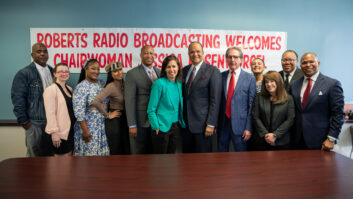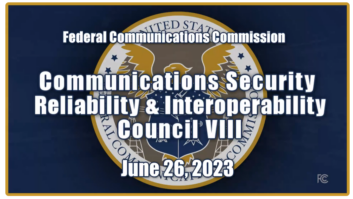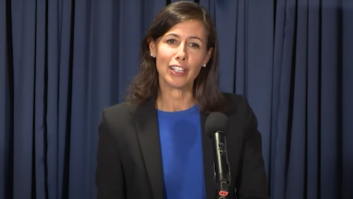Tuesday, FCC Commissioner Jessica Rosenworcel spoke about changing modes of distribution for musicians, new norms in the digital age and the importance of low-power FM stations, at the Future of Music Coalition’s Future of Music Summit, held at Georgetown University in Washington, Oct. 28–29.
Rosenworcel began her speech by disclosing that she has a tie to the music industry beyond her job, thanks her brother, Brian Rosenworcel, who plays drums in the alt rock band Guster.
“I have watched his band navigate digital distribution, songwriting, recording, contracts with major labels, radio airplay, social media, touring mechanics, rights sales, you name it,” she said.
Digital communications are “front and center” for the agency, Rosenworcel said. The digital age is “remaking the ways we create, distribute and consume content,” which creates “wondrous opportunities but also big and unruly challenges.”
Acknowledging how CDs and even downloads have declined in recent years, while streaming services gain traction, she said that “airplay on radio is still important — both terrestrial and satellite.”
As for online regulation, she said, “An open Internet means an Internet with an endless number of ways to showcase content. But rules governing open Internet policies are right now under court review. So stay tuned, because this is an issue that deserves attention.”
This past spring, Rosenworcel said she sat down with “music and policy experts” during South by Southwest, the annual music, film, technology and general innovation festival held in Austin, Texas.
“I learned about copyright, safe harbors, coverage for health insurance, touring, piracy, what bandwidth means to music, and what mobility means for listeners,” she said, adding some of the responses she got from artists about how they would like to publicize their work — which ranged from giving songs away in order to build a fan base to taking the more traditional route. “I walked away believing that these are transitional times without many across-the-board, easy answers.”
She spent a good chunk of her time shining a spotlight on LPFM stations, delving into some of low-power’s history with the FCC, extending back to 2000, and then turning toward the future, in relation to the 2011 Local Community Radio Act and the Nov. 14 deadline for applications for new stations.
“It is the first time LPFM station licenses will be available in the top 50 radio markets — which are home to 160 million potential listeners,” she said, going on to highlight some of the LPFM stations already in operation. These included Louisiana’s KOCZ, with its Cajun and zydeco; New Jersey’s WCFA, with its jazz; and the Pascua Yaqui tribe’s KPYT, which transmits language, music and story programming from a reservation in Arizona.
More stations, she said, would only add to the number of interesting new voices on the airwaves.
“Remember that 90% of the population in this country over age 12 listens to radio. That is a bigger population than the two-thirds of households with broadband at home. That means while LPFM stations may be small — they can have big impact.”
Rosenworcel ended her remarks by inviting an open dialogue from the music community at large. “My door is always open,” she said.
Rosenworcel’s entire speech can be found here.











